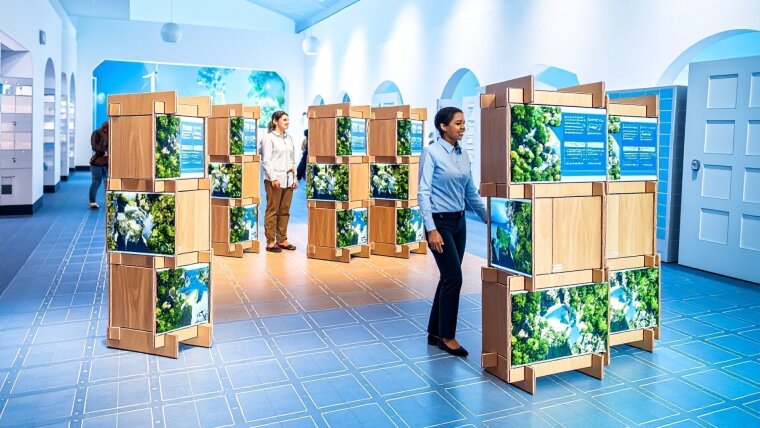
Event details
- Start
- End
- Venue
-
Universitätshauptgebäude
Fürstengraben 1, Zweite Etage
07743 Jena
Google Maps site planExternal link - Organized by
-
ELLIS Unit Jena
- Contact
-
Dr Conrad Phillip
- Languages of the event
- German
- English
- Event website
- Learn moreExternal link
- Wheelchair access
- Yes
- Public
- Yes
Human activities have significantly disrupted Earth’s natural systems, leading to profound consequences for climate, biodiversity, and human societies. Artificial intelligence (AI) offers powerful new ways to address these global challenges.
Visitors are invited to discover how machine learning is applied to monitor forests, assess land-use changes, and predict the impacts of extreme weather events. The exhibits highlight concrete examples of how AI helps identify endangered species, improve carbon cycle models, and guide reforestation efforts. Beyond technological innovation, the exhibition also emphasizes the importance of collaboration across disciplines — combining expertise from computer science, environmental research, and the social sciences to address global sustainability challenges. Through engaging visuals and accessible explanations, the exhibition aims to make cutting-edge AI research understandable to a broad audience and to inspire dialogue about the role of technology in shaping a sustainable future for our planet.
The exhibition opens on November 6, from 5:15 to 7:00 p.m., with a vernissage featuring informative talks on the research focus areas of the ELLIS Unit Jena and the main themes of the exhibition. Afterwards, visitors are welcome to explore the displays freely. Throughout the vernissage, there will be opportunities to engage directly with researchers, ask questions, and learn about ongoing projects and innovative technologies.
As part of the European excellence network ELLIS (European Laboratory for Learning and Intelligent Systems), the ELLIS Unit Jena conducts pioneering research at the intersection of artificial intelligence, environmental science, and sustainability. The Unit develops advanced machine learning methods that support ecosystem monitoring, climate analysis, and biodiversity conservation. It is jointly led by Prof. Dr. Joachim Denzler (University of Jena) and Prof. Dr. Markus Reichstein (Max Planck Institute for Biogeochemistry).